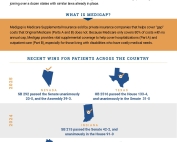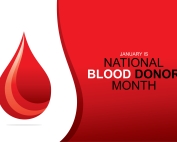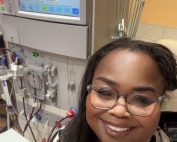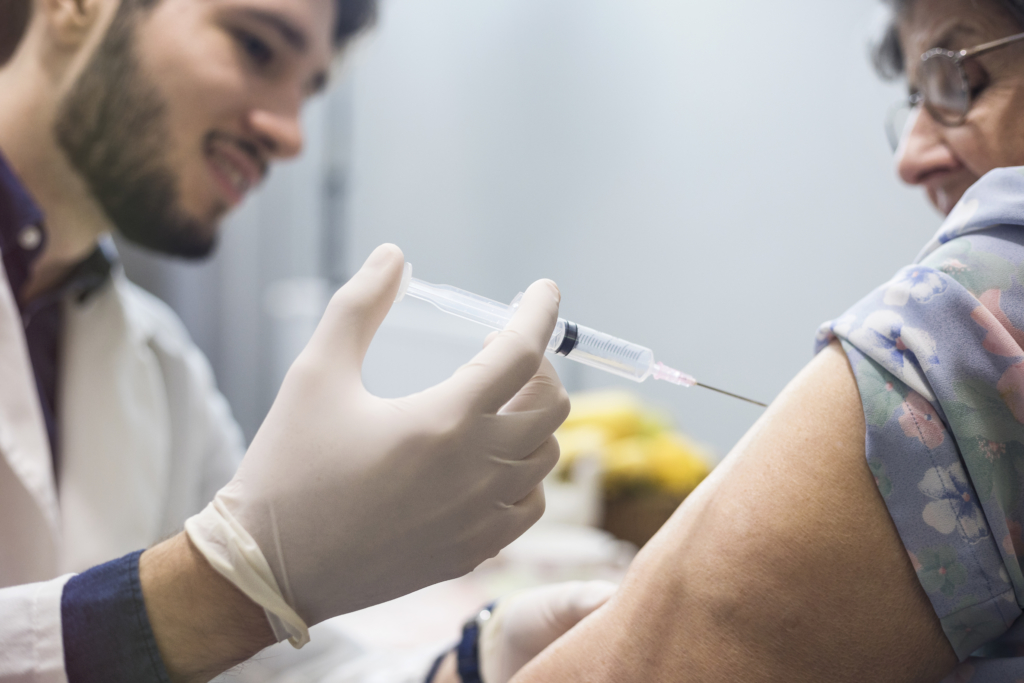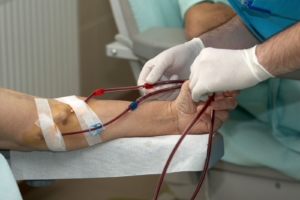Treatment
Although there is no cure for kidney disease, learn what you can do if you have Stage 5, End-Stage Renal Disease (ESRD). You have a number of treatment options to consider as you determine with your health care team which one works best for your life style.
Contents:
 Once you reach kidney failure, the diagnosis can be overwhelming. It is important to remember that kidney failure is not the end of your life, only the end of your kidney function. The choices for treatment for End- Stage Renal Disease (ESRD) include:
Once you reach kidney failure, the diagnosis can be overwhelming. It is important to remember that kidney failure is not the end of your life, only the end of your kidney function. The choices for treatment for End- Stage Renal Disease (ESRD) include:
- Kidney Transplant
- Dialysis (Home Dialysis, Peritoneal Dialysis, In-Center Hemodialysis)
- Conservative management (also known as medical management or supportive care)
Some people may start with one form of treatment and then later choose another treatment method. For example, someone might start on dialysis in-center and later choose to do dialysis at home. Or a person may do dialysis and then choose to receive a transplant. Or someone may start treatment with a transplant and if the transplant fails, the person goes on dialysis.
There is no cure for kidney failure and no one right treatment for everyone. Each treatment choice has advantages and disadvantages. It is important to participate with your health care team in your treatment choice based upon your lifestyle and what works best for you. If your nephrologist (kidney doctor) doesn’t offer the treatment choice that you want, you can be referred to another doctor that does offer the treatment to discuss your choice further.
Treatment and Modality Options for Kidney Disease
Related Information
Renal Health Disparities
The word “disparity” is defined as a difference in level or treatment, especially, one that is seen as unfair. No matter what race, creed, or color, all patients should be treated fairly and equally! Many [...]
2025 State Medigap Wins & 2026 Priorities
Elizabeth Lively, DPC Eastern Region Advocacy Director Pamela Zielske, DPC Western Region Advocacy Director DPC will continue to build on this momentum in the state Medigap arena in the 2026 [...]
January is National Blood Donor Month
Every blood donation is a lifeline, especially for dialysis and transplant patients who depend on a reliable blood supply for treatment, surgery, and recovery. During National Blood Donor Month, we’re reminded just how critical [...]
Living Fully: My Journey with Peritoneal Dialysis
Dwan Dobson, DPC Patient Ambassador When I was first diagnosed with kidney failure in 2005, it felt like my life had been turned upside down overnight. One day I was working two [...]
Choosing the Right Path: My Journey with Home Hemodialysis
Amber Gardner, DPC Patient Ambassador When I was diagnosed with kidney failure in 2023, it came as a shock. I had gone to the doctor for high blood pressure, but soon learned [...]
Turning Trials into Triumph: A Journey with Kidney Disease
Alethea Walls, DPC Board Member I've learned that living with kidney disease doesn't mean life stops - it just means you learn to live it differently. My journey with kidney disease began [...]
Learn More About Treatment

Treatment
Chronic kidney disease may progress to End-Stage Renal Disease, which has a number of treatment options.

Early Intervention
There are proactive actions you can take to decrease your chances of developing kidney disease in the future.

Medication
It is important to take all of your medicines as prescribed for your kidney disease, even if you don’t notice an immediate difference.


